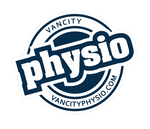Did you know your Temporomandibular Joint (TMJ) is the most used joint in your body? We use this joint when we’re eating, talking, breathing, yawning and even when we smile or frown! With all this heavy lifting, our TMJ can become fatigued, injured or damaged, leading to chronic pain and discomfort.
The Symptoms of TMJ Dysfunction
TMJ dysfunction is on the rise across Canada. People suffering from this problem will likely experience some of the following symptoms:
- Jaw clicking
- Jaw popping
- Teeth grinding
- Limited jaw opening
TMJ dysfunction can also lead to regular headaches, tight upper neck muscles and even ear pain. It’s an extremely uncomfortable physical problem to deal with, and one VanCity Physio specializes in treating.
How VanCity Physio Helps
At VanCity Physio, we specialize in treating clients suffering from TMJ problems. Our initial assessment involves an examination of posture, the cervical spine and the temporomandibular joint to establish a primary diagnosis. We will identify any contributing factors, postural changes that can be made, before establishing a treatment plan to rectify the problem. With TMJ issues, it’s important to seek assessment and treatment promptly, before the problem can become chronic. Contact us and we’ll be delighted to work with you to solve the problem.
Caring for TMJ Issues at Home
For those dealing with TMJ issues, there are a number of steps that can be taken before your appointment to help begin the healing process. Below, we will outline a few of these steps.
Heat/Ice Treatment
It may be simple, but it works! Moist heat from a heat pack or hot water bottle wrapped in a warm, moist towel will improve muscle function and reduce pain. An ice pack works to decrease inflammation and numb pain, while also promoting healing. Make sure to wrap the ice pack in a clean cloth.
Avoid Crunchy Foods
Hard, crunchy foods cause our jaws to overwork themselves. Keeping your diet to soft or blended foods will give your jaw a rest and allow it space to heal. Try to avoid cramming lots of food into your mouth at once as you don’t want to stretch your mouth to accommodate them. Needless to say, avoid chewing gum if you’re dealing with a TMJ problem.
Steer Clear of Caffeine
A sound piece of advice from anyone dealing with muscle stiffness is to avoid caffeine. While this drug perks us up and helps us to stay awake, it also causes our muscles to tense up and feel tighter. For somebody dealing with TMJ problems, this is like throwing fuel on the fire and has the potential to make the problem worse.
Be Aware of How You Sleep
How you sleep can have a huge impact on TMJ issues. Avoid sleeping on your stomach as this is a source of great strain for the jaw and neck muscles. The ideal sleeping position for helping with TMJ is on your back. Side sleeping is an ok alternative.
Find Out More
Need help treating a TMJ issue? At VanCity Physio, we’re specialists in treating this difficult disorder. To find out more, or book an appointment, contact us and we’ll be happy to help.


